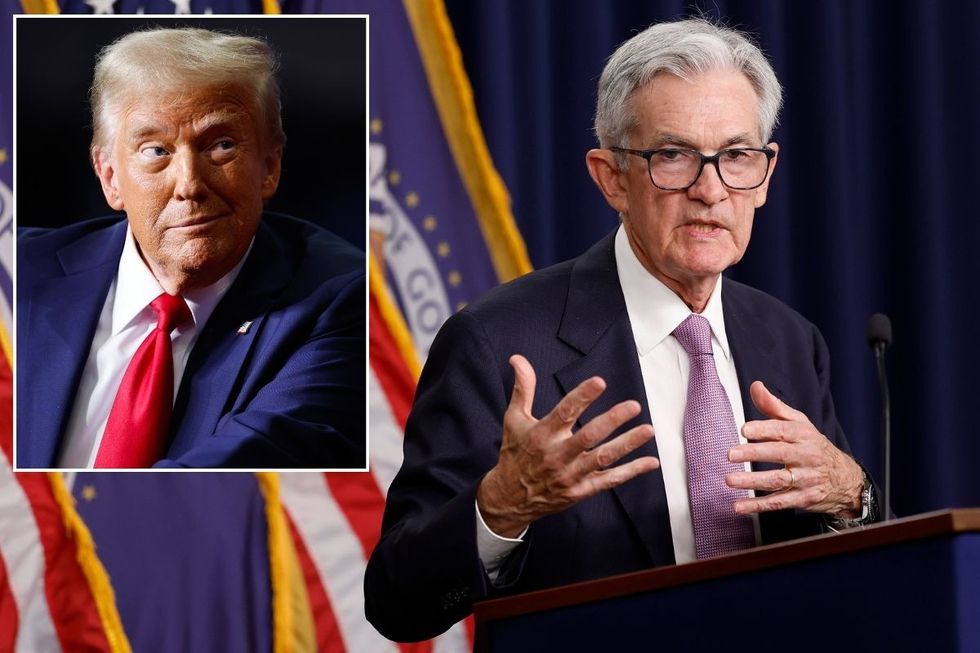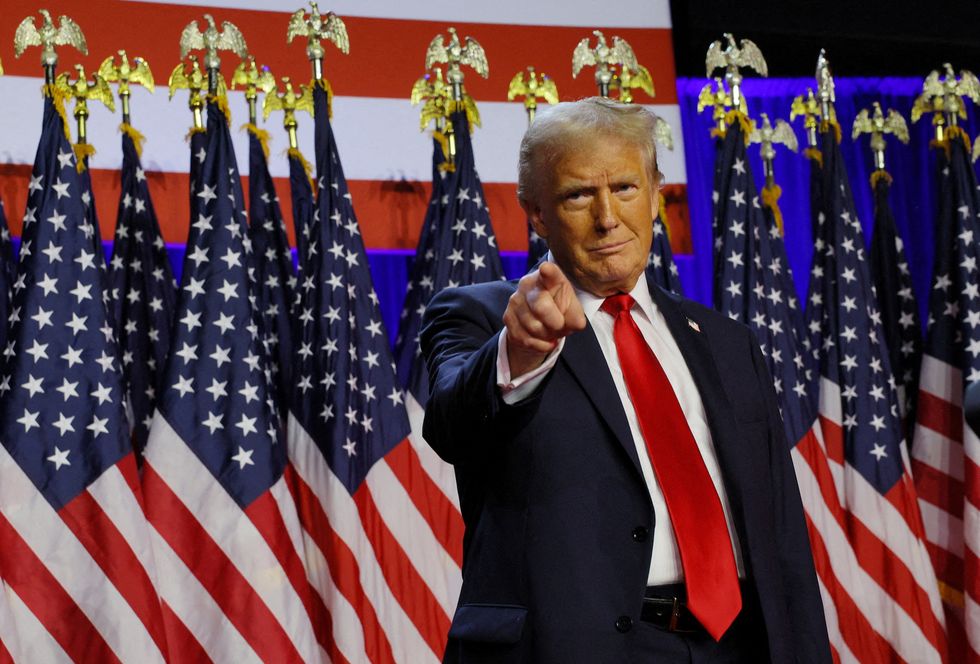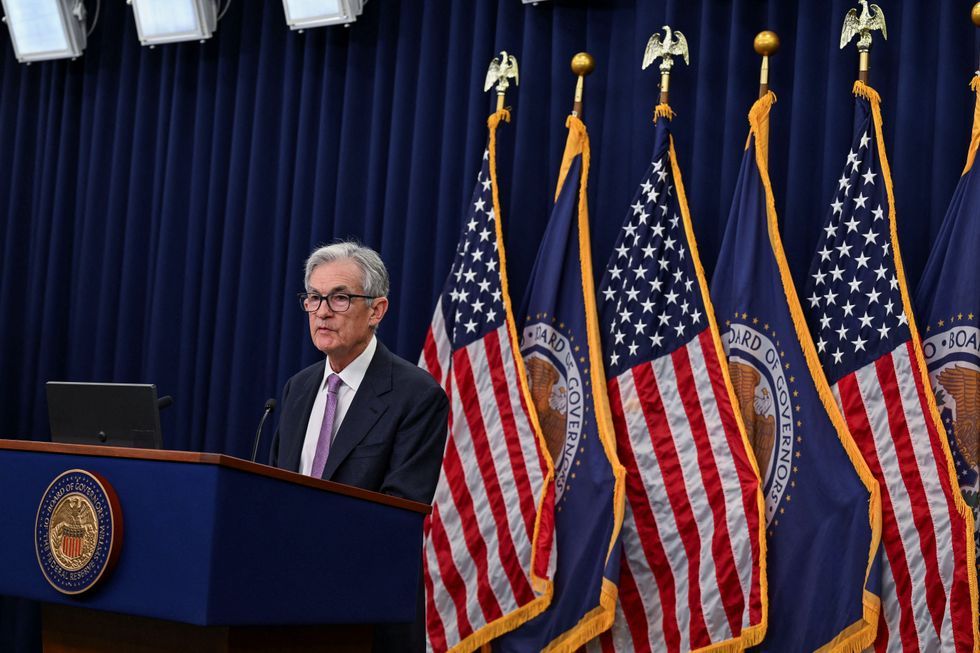Donald Trump hired Jerome Powell in 2018 but considered firing the Fed's boss after he declined to sharply lower interest rates
Don't Miss
Most Read
Trending on GB News
The Federal Reserve has cut US interest rates from 4.5 per cent to 4.75 per cent despite uncertainty about Donald Trump's return to the White House.
Fed policymakers made a second consecutive cut after Trump appeared to suggest he would end his feud with Jerome Powell after entering the Oval Office.
US interest rates differ from the Bank of England's set for the UK as it provides a range to guide lenders rather than a single percentage.
Rates were dropped by the Fed as inflation collapsed to just 2.4 per cent.

US interest rates fall for second time in four years as Trump ends spat with Fed boss
GETTY
The Fed, which sets an inflation target of two per cent, also welcomed a recent jobs report of the Biden administration was posted in September.
The regulator is tasked with both maintaining price stability and maximum US employment.
Jerome Powell, who was appointed as chair of the Fed in 2018, developed a fractious relationship with Trump.
The 45th President, who will soon become the 47th President, considered firing Powell after he refused to sharply lower interest rates.
LATEST DEVELOPMENTS:
 Donald Trump became the first Republican to win the popular vote in 20 yearsReuters
Donald Trump became the first Republican to win the popular vote in 20 yearsReutersTrump had described Powell as "clueless" and an "enemy" during his first term in the Oval Office.
However, Trump recently stressed he would not fire Powell after his return to the White House.
The 78-year-old promised interest rates would fall under his leadership.
Despite reducing rates remaining under the remit of the Fed, the comments bring into question the independence of the independent agency.

US Federal Reserve Chair Jerome Powell speaks during a press conference
Reuters
Trump can influence the Fed's decision-making by appointing board members.
Any appointments remain subject to the now Republican-controlled Senate.
The Fed was made independent in 1951 so it could take action to lower inflation free of political interference.
The latest announcement also comes as policymakers now consider if Trump's high-tariff policies will have an inflationary impact on the US economy.









